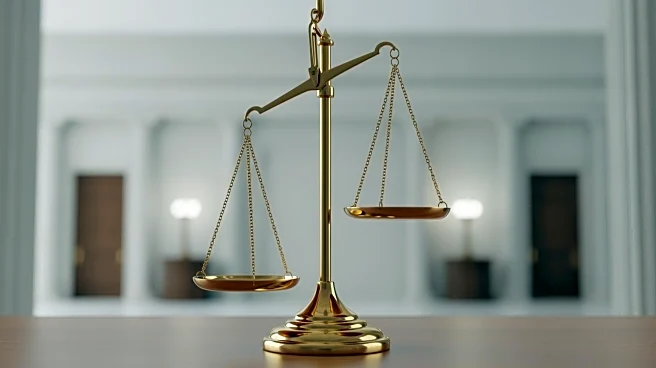What's Happening?
The Supreme Court is set to review the legality of tariffs imposed by President Trump under the International Emergency Economic Powers Act (IEEPA). These tariffs, which have been a cornerstone of Trump's
economic policy, have sparked significant debate over their impact on international trade and the U.S. economy. The tariffs were initially introduced as a means to address trade imbalances and have been applied to a wide range of global trade partners. The legal challenge questions whether the president has the authority to impose such tariffs without congressional approval, as the Constitution grants Congress the power to regulate commerce with foreign nations.
Why It's Important?
The outcome of this Supreme Court case could have far-reaching implications for U.S. trade policy and the balance of power between the executive and legislative branches. If the court rules against Trump, it could limit the president's ability to unilaterally impose tariffs, potentially leading to a rollback of current tariffs and a shift in trade relations. This decision could also impact the U.S. economy by reducing inflationary pressures and providing more stability for businesses affected by the tariffs. Conversely, a ruling in favor of Trump could reinforce the executive's power in trade matters, allowing for continued use of tariffs as a tool for economic and foreign policy.
What's Next?
The Supreme Court's decision is expected to be closely watched by both domestic and international stakeholders. Businesses, particularly those in industries heavily impacted by tariffs, will be looking for clarity on future trade policies. Political leaders and trade partners may also react to the ruling, potentially influencing future negotiations and economic strategies. The decision could also set a precedent for how trade powers are distributed between the president and Congress, affecting future administrations.
Beyond the Headlines
This case highlights the ongoing debate over the scope of executive power in the U.S. government. It raises questions about the balance of power and the role of checks and balances in trade policy. The decision could also influence public perception of the president's handling of the economy, which has been a contentious issue. Additionally, the case underscores the complexities of international trade and the challenges of navigating global economic relationships in a rapidly changing world.









